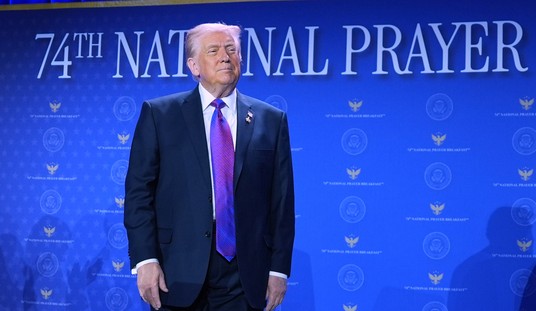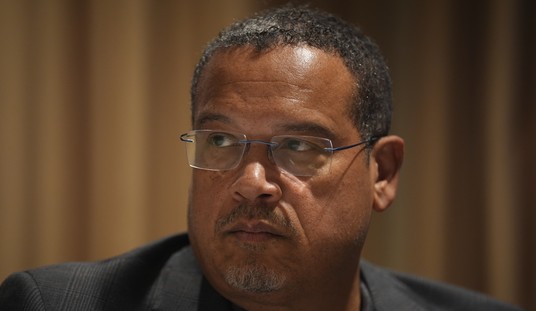Last weekend was my daughter's 20th birthday so I spent some time hanging out with her as we went shopping for a new computer (her 6 year old laptop was on its last legs). She brought up a new show on Netflix that had really impressed her and encouraged me to watch it. It's a true-crime limited series called The Program: Cons, Cults, and Kidnapping. There are just three episodes, about an hour long each.
I finished watching it last night and The Program really does tell a remarkable story about a girl named Katherine Kubler who at age 15 got in trouble for drinking a Mike's Hard Lemonade at a private high school she was attending. Instead of a minor suspension, her father and stepmother decided she needed some tough love and in 2004 sent her to a boarding school in New York called Ivy Ridge Academy. At the time, it was marketed to parents as a place that could reform troubled teens while they finished high school and got a diploma.
What many parents who sent their kids to Ivy Ridge did, again this was marketed to them, was arrange for what was euphemistically called "transport." That didn't mean calling a taxi. Instead, to avoid having to argue with their children, parents would arrange to have a couple of large men show up, usually in the middle of the night, drag the child out of bed and deliver them to Ivy Ridge. This was legal since the parents had given consent but for the teens it often felt like they were being kidnapped.
Once at Ivy Ridge, they were strip-searched and quickly assigned a "family" of other kids, some as young as 13. There were a host of new rules which made the school something like a military prison. Rule #1 was that no one could go outside. The doors all had electronic locks and the windows had steel mesh on the outside. Rule #2 was no talking, at all to anyone except under very limited circumstances.
To make sure students followed all of the rules, there was a complex points system. Students started at level 1 and could only leave by completing the program at level 6. Each day without incident granted them 15 points to slowly climb up the levels. But any infraction, such as looking out a window or speaking to another person would earn a correction, basically negative points that meant you were essentially adding time to your sentence. And of course the school was charging parents outrageous sums to attend so it was actually in their interest to drag out the process as much as possible, In Katherine's case, she wound up being their 15 months but other kids were there for more than three years.
Students had to write a letter home once a week and for the most part this was their only communication with the outside world. The letters were read before being sent and students could be docked points for "manipulation" if they begged their parents to let them come home. Similarly, once students earned enough points for a brief phone call, a staff member sat in the room listening to the call. If they complained about the program or begged to come home, the call was cut off and they would again lose points.
It was sort of the Chinese social credit system in miniature and like that system it wasn't enough to merely follow all the rules. Levels 1-3 had no privileges but levels 4-6 allowed girls to grow their hair a bit and talk to other girls (boys were in a separate building and you lost points for even looking at them). In levels 4-6 the girls were given jobs. There were the cleaning staff for the whole facility and they also served as kapos, helping the staff monitor the lower level kids and writing reports about reasons they deserved consequences in the form of docked points for whatever infractions they had witnessed. Making it through the program meant becoming part of the program and being tough on the new kids.
There were daily group meetings in which something called "attack therapy" was practiced. People would be asked to share and then the other kids were trained to denounce them using program specific rhetoric. It reminded me of the ritual denunciation that occurred during the cultural revolution in China. The goal was similar. The staff and the upper level students wanted to break down the kids and make them comply with the program. Those who resisted in the slightest way were put in isolation in a small room. One male "student" at the school remembers being ordered to sit on the very edge of a chair, his back straight and stare at the wall for hours. Any flinch or failure to sit upright meant added time, maybe another two hours of staring at the cinder blocks. And any refusal to follow staff orders would result in a "takedown" essentially being tackled by a group of adult men (or women).
Because one element of complying was public confession, students quickly learned that the truth was often insufficient. One girl featured in the program had never done drugs when she arrived at Ivy Ridge. Her drug test form was found in her file with other documents left behind in the school. It showed that when she arrived was completely negative for any drugs. But for some reason the staff member who was her sole point of contact with her parents claimed the test showed she had drugs in her system. Her parents were told this as well. It was a lie but it meant that her only way to progress in the program was to confess an ever more extreme series of drug experiences she'd never had. She was eventually "confessing" to using every drug under the sun and was routinely called a "crack whore" by the staff.
One of the most shocking things you learn in later episodes is that Ivy Ridge wasn't a school at all. It had only one certified teacher and no accreditation from the state. School time meant hours each day sitting in front of computers that had a very basic curriculum on it. There was no classroom instruction in the normal sense. And the diplomas given out to graduates each year (those who'd made it though level 6) were completely worthless. Many former students would later have to get a GED on their own.
As you probably guessed by now, Katherine Kubler would get out and go on to film school. She has spent about 10 years working on this documentary. The whole point, as she explains a couple times during the show, was to try to explain to her father what it had been like in the hopes of salvaging their relationship years later.
Perhaps the most sinister aspect of Ivy Ridge and a network of similar schools run along the same lines, was that the real targets weren't the kids but the parents. The schools had extensive talking points and separate group meetings for manipulating them, warning them in advance that their kids might say horrible things were happening at the schools but assuring them those were attempts to manipulate them, a weakness which had to be resisted for the good of their child. Parents were warned that failure to complete the program could result in suicide, something which sounds similar to what parents are currently told if they question a child's desire to transition gender, i.e. would you rather have a live son or a dead daughter?
Sadly the opposite turned out to be true at Ivy Ridge. Of the people Kubler and her friends knew during her time there they estimate that about 40 have committed suicide. It's not a happy story but it is a relevant one. The masterminds behind these schools, who are identified in a later episode, have never been punished, though that could be changing as of last week.
St. Lawrence County district attorney Gary Pasqua announced Monday he’s launched an investigation into the Academy at Ivy Ridge.
Pasqua said he’s received a flood of complaints alleging abuse at the school. He urged the public to be patient while his office investigates the claims and not harass people who worked at the school.
Ivy Ridge shut down in 2009 but schools like Ivy Ridge still exist with almost no oversight.
The whole thing reminds me of the Jeffrey Epstein story. I wrote about that repeatedly back in 2005-2006 when it first came to light. It was incredible that a crime involving teens could have gone on for so long but despite the shocking nature of it all, Epstein got a sweetheart deal and seemed to have essentially gotten away with it. Interest faded and the media never talked about it.
It took more than a decade before a more serious investigation resulted in his arrest and conviction. Similarly, this story also got brief attention a few years ago after a book written by a journalist came out and congressional hearings were held, but nothing really happened to anyone involved. Maybe this time things will be different.








Join the conversation as a VIP Member